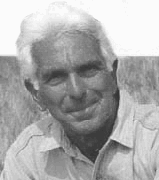Why So Many Tattoos?
There are three kinds of people in the world: those who would never get a tattoo, those who after a couple glasses of wine in an artsy district say to themselves, “What the heck,” and then there are those who LOVE tattoos!
One day, while doing therapy with someone who fits the third category, I got curious and asked, “What is it about tattoos that you love so much?” He clarified that it was getting a tattoo that he more so loved. He went on to describe the profound sense of well-being and euphoria that he experienced while being tattooed. Upon further questioning, I learned that he always sought tattoos from the same person and that this person is generally warm and kind. He emphasized the man’s gentle touch and explained that a single session can last up to three hours.
After hearing that, all the pieces came together. Because the body is in distress from the needle, during tattooing the attachment system will become active. If during a prolonged period of vulnerability a person is treated with warmth and kindness, then more emotional experiencing is likely. For those who have a withdrawn attachment style, this burst of emotion may be a novel experience. In addition to the attachment systems, there is the general human need to be touched. The importance of touch has been acknowledged in mainstream health fields such as nursing, chiropractic work, and massage therapy. Now I was starting to think that under the right conditions, tattoo work may be another version of touch therapy.
If at the end of a tattoo session, the artist would just ask open ended questions about what the client is seeking to express with the art that he choose, then it would qualify as attachment therapy, touch therapy, and art therapy, all rolled into one! Now I could understand why some individuals, such as my client, would seek out as many tattoo sessions as they can afford.
As the client with so many tattoos sat in my office, I began to think about Mother Teresa. More specifically, a quote from her, “The greatest disease in the West today is not TB or leprosy; it is being unwanted, unloved, and uncared for. We can cure physical diseases with medicine, but the only cure for loneliness, despair, and hopelessness is love. There are many in the world who are dying for a piece of bread but there are many more dying for a little love.”
As my meeting with my client continued, he told me many painful stories. He grew up with a stepfather who hated him and was physically violent toward him. As a young man he made a best friend whom he loved, but that person was also depressed and eventually took his own life with a gun to the head. Earlier in the week, he had been forced to have a little kitten put to sleep. I listened to each of his stories and shared in as much of his sadness as I felt able to do. Then when it came time for him to leave, I looked over this large street toughened man and asked if he would like a hug. Nodding his head in a child-like manner, he rounded his posture and readily soaked up just a little love.


 BOL: I hope our conversation will focus on the how-to of intervening in order to enhance the performance of organizations. You are a master of that art, but your most important work has focussed elsewhere: on understanding the nature of the organization,...
BOL: I hope our conversation will focus on the how-to of intervening in order to enhance the performance of organizations. You are a master of that art, but your most important work has focussed elsewhere: on understanding the nature of the organization,...  BOL: Alfred Adler’s name is better known to today’s therapists than are his ideas and methods. Your dedication to this body of work must be based on the belief that contemporary practice is diminished because Adler’s contributions are not...
BOL: Alfred Adler’s name is better known to today’s therapists than are his ideas and methods. Your dedication to this body of work must be based on the belief that contemporary practice is diminished because Adler’s contributions are not...